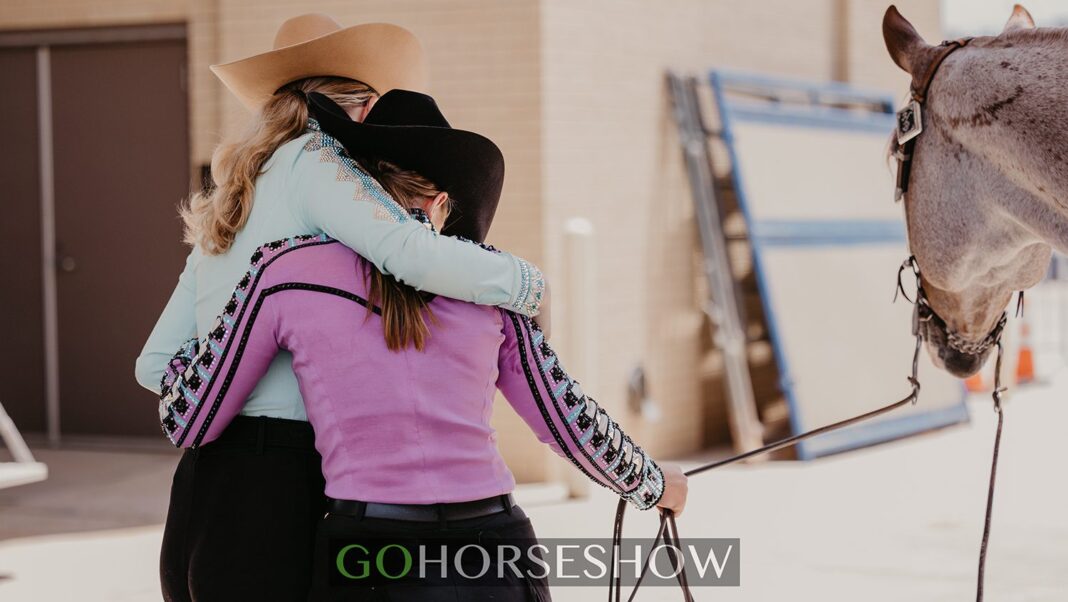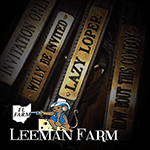Do you have beneficial ways that you reset your mind if it’s in a negative place? Things you do personally as a rider as well as tips or advice you may tell a student or friend to help overcome this struggle? Do you have problems with perfectionism?
We posed these tough questions to several people in the industry who provided some great tips on how they navigate the rough waters when their mind is not in a healthy place.
 Rachel Kooiker – Counting is a simple (very simple) way to reset my mind. I discovered this trick worked well for me while running. I will count in simple patterns – like up to 100 and back down to 1 or by tens until I reach a certain number. This takes just enough focus to derail any negative thoughts I might be having. Another method I have is to label the thought and then contradict it with true, positive statements. It’s sort of like the opposite of devil’s advocate. As far as advice to a friend – there are two things I think are helpful. One, it ONLY takes anywhere from 7-30 seconds to change your train of thought. So if you catch yourself ruminating, set a timer and do something that works for you to break up that thought cycle for 30 seconds. A 30-second dance party never fails. Next, one of my favorite scenes and quotes from “Ted Lasso” is a scene where Ted advises a player who just made a huge mistake to “be a goldfish.” Why? Because they only have a ten-second memory. So move on!
Rachel Kooiker – Counting is a simple (very simple) way to reset my mind. I discovered this trick worked well for me while running. I will count in simple patterns – like up to 100 and back down to 1 or by tens until I reach a certain number. This takes just enough focus to derail any negative thoughts I might be having. Another method I have is to label the thought and then contradict it with true, positive statements. It’s sort of like the opposite of devil’s advocate. As far as advice to a friend – there are two things I think are helpful. One, it ONLY takes anywhere from 7-30 seconds to change your train of thought. So if you catch yourself ruminating, set a timer and do something that works for you to break up that thought cycle for 30 seconds. A 30-second dance party never fails. Next, one of my favorite scenes and quotes from “Ted Lasso” is a scene where Ted advises a player who just made a huge mistake to “be a goldfish.” Why? Because they only have a ten-second memory. So move on!
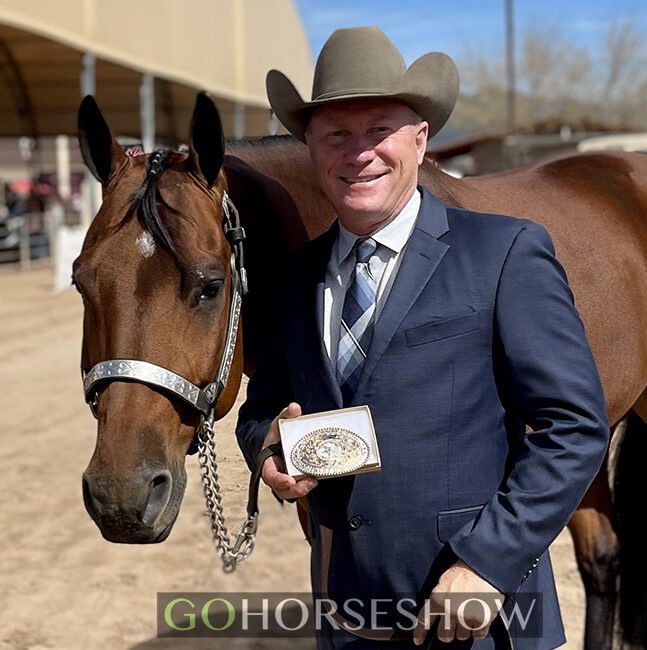 Scott Reinartz – One thing you get from showing horses over 40 years is experience. I use to dwell on my patterns that did not go as planned, what I could have done, what I should have done, why did I do that, why didn’t I do that etc, wheels go round and round. I then tried to focus on what worked, I did that right, this piece went just as planned, etc. I now try to look at my performance as just that a performance in a specific time and place. If it doesn’t go as planned, I improvise and adjust to make it work. If I make a mistake, I might dwell for a set time, 30 minutes max. Then, I let it go. I practice a lot at home on elements, not patterns. If you have all the pieces, your puzzle will fall into place. There will be another day to do better, or worse, it’s not your last performance, grow with it.
Scott Reinartz – One thing you get from showing horses over 40 years is experience. I use to dwell on my patterns that did not go as planned, what I could have done, what I should have done, why did I do that, why didn’t I do that etc, wheels go round and round. I then tried to focus on what worked, I did that right, this piece went just as planned, etc. I now try to look at my performance as just that a performance in a specific time and place. If it doesn’t go as planned, I improvise and adjust to make it work. If I make a mistake, I might dwell for a set time, 30 minutes max. Then, I let it go. I practice a lot at home on elements, not patterns. If you have all the pieces, your puzzle will fall into place. There will be another day to do better, or worse, it’s not your last performance, grow with it.
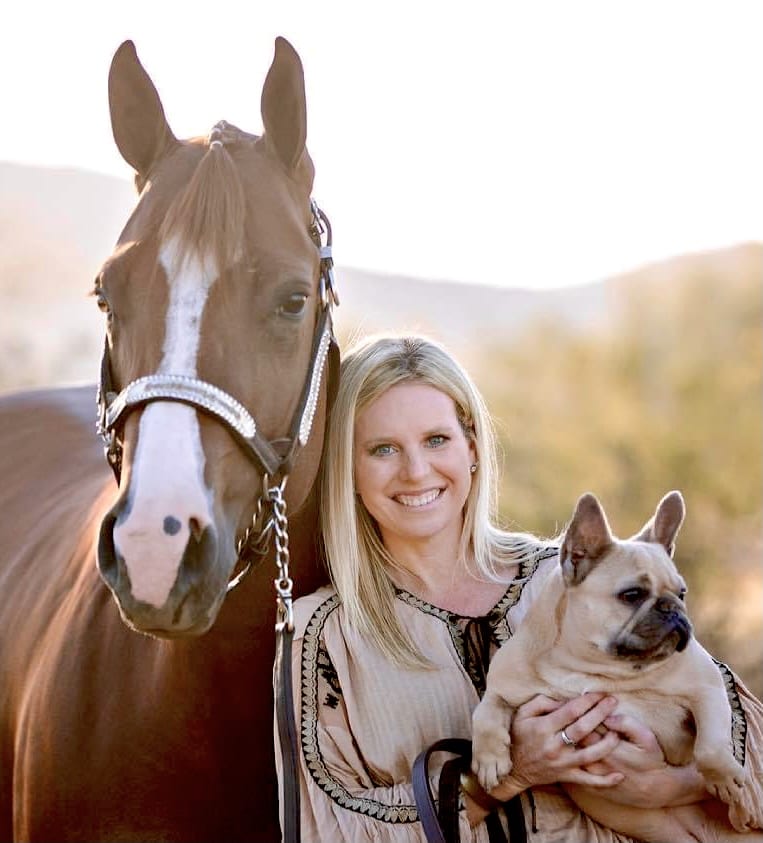 Ashley Hadlock – I try hard to not focus on the negative. For me, it only magnifies something that may be very small. Rather, find a positive and build on that. One way I try to overcome negative when I find myself down is to make myself find one positive and be happy with it. Of course I want to be perfect, but a perfect pattern or ride doesn’t happen overnight. It’s a lot of practice and hours of building the small positives into one huge positive. Riding and showing younger/green horses has really taught me this. If I focus negatively, I tend to get a negative outcome. Rather, I try to find positive- even if very small – build on that energy. Your horse will appreciate you for that…they want you to show them how you support and appreciate them, not always pick on what was wrong.
Ashley Hadlock – I try hard to not focus on the negative. For me, it only magnifies something that may be very small. Rather, find a positive and build on that. One way I try to overcome negative when I find myself down is to make myself find one positive and be happy with it. Of course I want to be perfect, but a perfect pattern or ride doesn’t happen overnight. It’s a lot of practice and hours of building the small positives into one huge positive. Riding and showing younger/green horses has really taught me this. If I focus negatively, I tend to get a negative outcome. Rather, I try to find positive- even if very small – build on that energy. Your horse will appreciate you for that…they want you to show them how you support and appreciate them, not always pick on what was wrong.
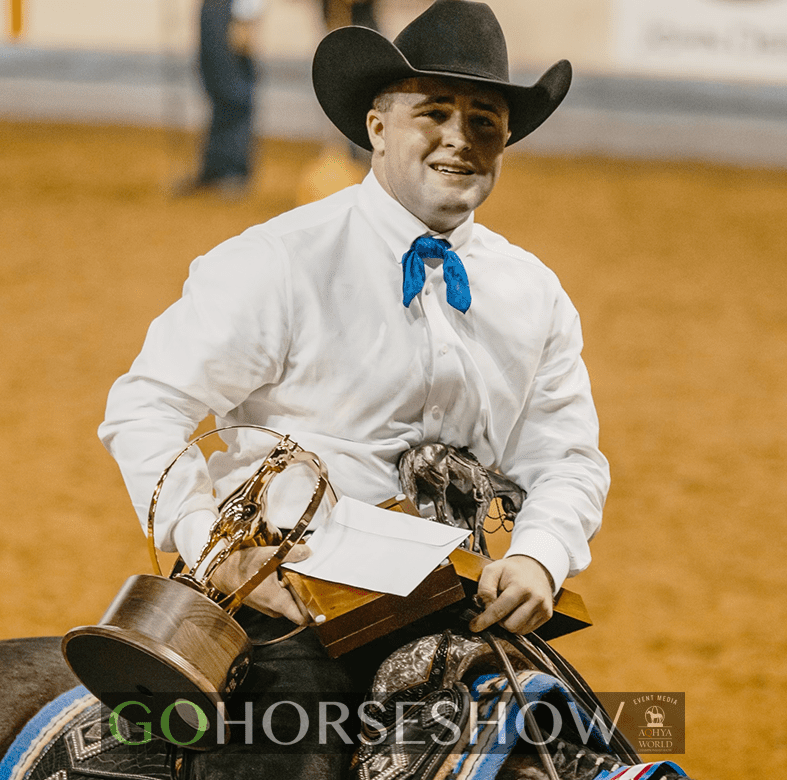 Grant Mastin – Navigating a competitive environment and the pursuit of perfection can be challenging. The pressure, if not managed well, may become a downfall. To thrive, it is important to actively seek positives in every situation – be it improvements in areas of your patterns, a small breakthrough when you go ride, or elsewhere that you feel you are struggling. It is imperative to embrace mistakes as learning opportunities, fostering a positive, growth mindset for the future. Continually be open to learning and talking with others about where you are mentally. Lastly, it is important to find an “escape” that allows you to reset and this “escape” looks different for everyone. Despite the pursuit of perfection, acknowledge and embrace imperfections, learn from the past, focus on what you can control, and seek the positives in every situation, trusting that everything else will fall into place in due time.
Grant Mastin – Navigating a competitive environment and the pursuit of perfection can be challenging. The pressure, if not managed well, may become a downfall. To thrive, it is important to actively seek positives in every situation – be it improvements in areas of your patterns, a small breakthrough when you go ride, or elsewhere that you feel you are struggling. It is imperative to embrace mistakes as learning opportunities, fostering a positive, growth mindset for the future. Continually be open to learning and talking with others about where you are mentally. Lastly, it is important to find an “escape” that allows you to reset and this “escape” looks different for everyone. Despite the pursuit of perfection, acknowledge and embrace imperfections, learn from the past, focus on what you can control, and seek the positives in every situation, trusting that everything else will fall into place in due time.
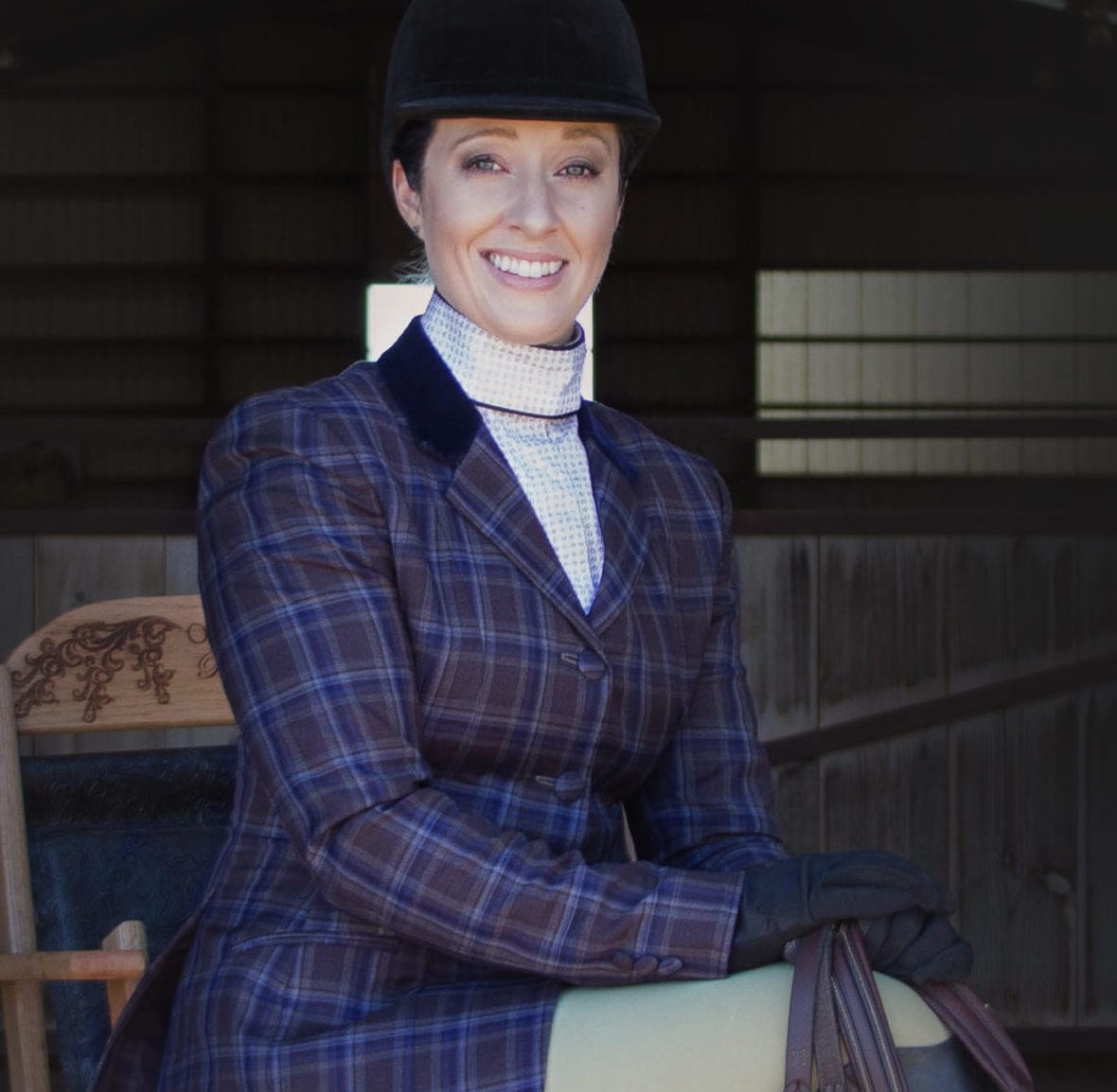 Alyse Roberts – When I’m in a bad spot mentally, I try to remind myself the reason why I chose this profession and I remind myself that it’s about the love of the horse above all else. Tomorrow is another day and can start over then. I also remind myself constantly that it’s not just about the win or the trophy or the neck ribbon… it’s about consistently being in that top tier and knowing that at any given day any one of those top horses could be the winner. I always just try to remind myself or customers or friends that no one is perfect and neither are the horses.. we all have our off days and it’s more about the journey getting there than only the end result. If I make a mistake, I do internalize that but I also will own up to any mistake or misjudgment that I had, and I will most certainly learn from those instances.
Alyse Roberts – When I’m in a bad spot mentally, I try to remind myself the reason why I chose this profession and I remind myself that it’s about the love of the horse above all else. Tomorrow is another day and can start over then. I also remind myself constantly that it’s not just about the win or the trophy or the neck ribbon… it’s about consistently being in that top tier and knowing that at any given day any one of those top horses could be the winner. I always just try to remind myself or customers or friends that no one is perfect and neither are the horses.. we all have our off days and it’s more about the journey getting there than only the end result. If I make a mistake, I do internalize that but I also will own up to any mistake or misjudgment that I had, and I will most certainly learn from those instances.
 Katy Jo Zuidema – Absolutely I do. I have learned how to manage myself. It’s easy to get in a negative mindset for me if I haven’t sold a horse in a while and my horses and I are arm wrestling. I force myself to pretend I’m in a good mood for an hour. As a very positive person, I end up being contagious to myself and those around me. It usually works if I try hard enough at it. Every negative thought I have I respond to myself in a positive way. You know how u have a conversation in your head? That’s what I do. It requires mental strength and discipline. But I can do it if I really want to. If I can’t there’s always wine.
Katy Jo Zuidema – Absolutely I do. I have learned how to manage myself. It’s easy to get in a negative mindset for me if I haven’t sold a horse in a while and my horses and I are arm wrestling. I force myself to pretend I’m in a good mood for an hour. As a very positive person, I end up being contagious to myself and those around me. It usually works if I try hard enough at it. Every negative thought I have I respond to myself in a positive way. You know how u have a conversation in your head? That’s what I do. It requires mental strength and discipline. But I can do it if I really want to. If I can’t there’s always wine.
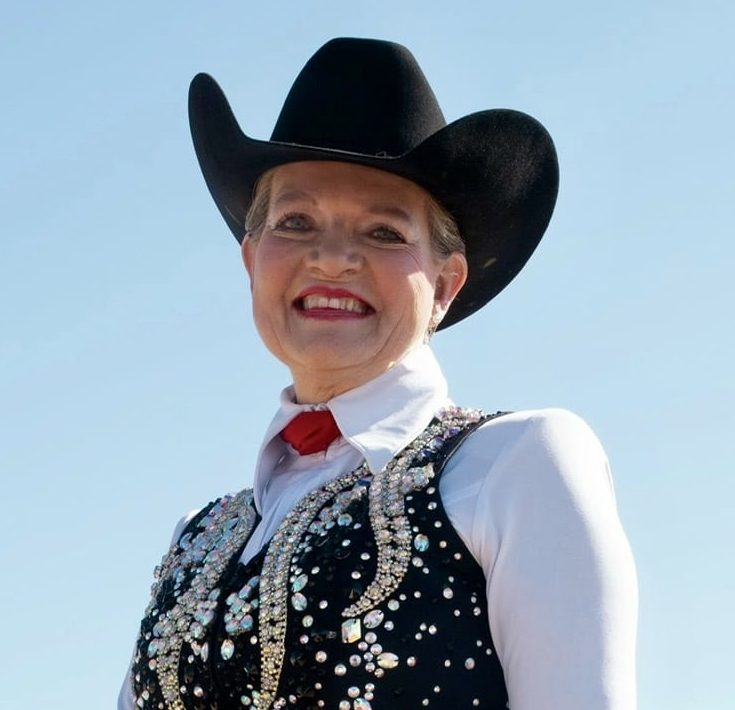 Brister Shum – “Am I good enough? Can I do this?” These negative thoughts don’t often come into my head. But, when they do, it’s usually because of nerves. My trainers often remind me to trust the skills I have built over the years from lessons and practice. This puts my mind at ease. Also, I have found that whatever I tell myself (positive or negative) is somehow magically ‘heard’ by my horse. If I go into a class thinking I am going to mess up, I usually do. But if I think positively, things usually work out.
Brister Shum – “Am I good enough? Can I do this?” These negative thoughts don’t often come into my head. But, when they do, it’s usually because of nerves. My trainers often remind me to trust the skills I have built over the years from lessons and practice. This puts my mind at ease. Also, I have found that whatever I tell myself (positive or negative) is somehow magically ‘heard’ by my horse. If I go into a class thinking I am going to mess up, I usually do. But if I think positively, things usually work out.
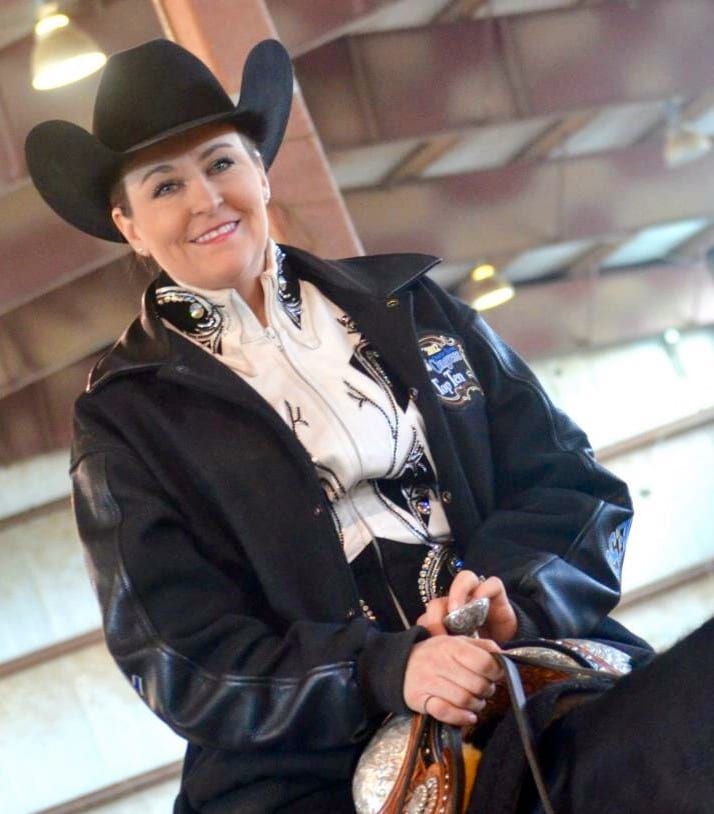 Melissa Shetler – This is a tough one. It’s hard for some riders to come back mentally at a show when things go wrong. Sometimes you have to regroup and maybe reevaluate goals. Making small goals after a tough day or show sometimes is the way to add some positivity. Bad days and bad shows pass. We all go through it. I often remind customers that I as a professional go through it myself as well.
Melissa Shetler – This is a tough one. It’s hard for some riders to come back mentally at a show when things go wrong. Sometimes you have to regroup and maybe reevaluate goals. Making small goals after a tough day or show sometimes is the way to add some positivity. Bad days and bad shows pass. We all go through it. I often remind customers that I as a professional go through it myself as well.
 Lauren Crivelli – Yes! I listened to a podcast with cutting horse trainer Jesse Lennox and he compared making mistakes in the show pen to a golfer making a mistake on their drive. The goal isn’t to never make a mistake, the goal is to get back on track as quickly as possible. He called it having a “high bounce back percentage.” I loved the idea of this, because it takes away the need to be perfect. If I make a mistake and start feeling down, I just tell myself that this is a great opportunity to work on my bounce back.
Lauren Crivelli – Yes! I listened to a podcast with cutting horse trainer Jesse Lennox and he compared making mistakes in the show pen to a golfer making a mistake on their drive. The goal isn’t to never make a mistake, the goal is to get back on track as quickly as possible. He called it having a “high bounce back percentage.” I loved the idea of this, because it takes away the need to be perfect. If I make a mistake and start feeling down, I just tell myself that this is a great opportunity to work on my bounce back.
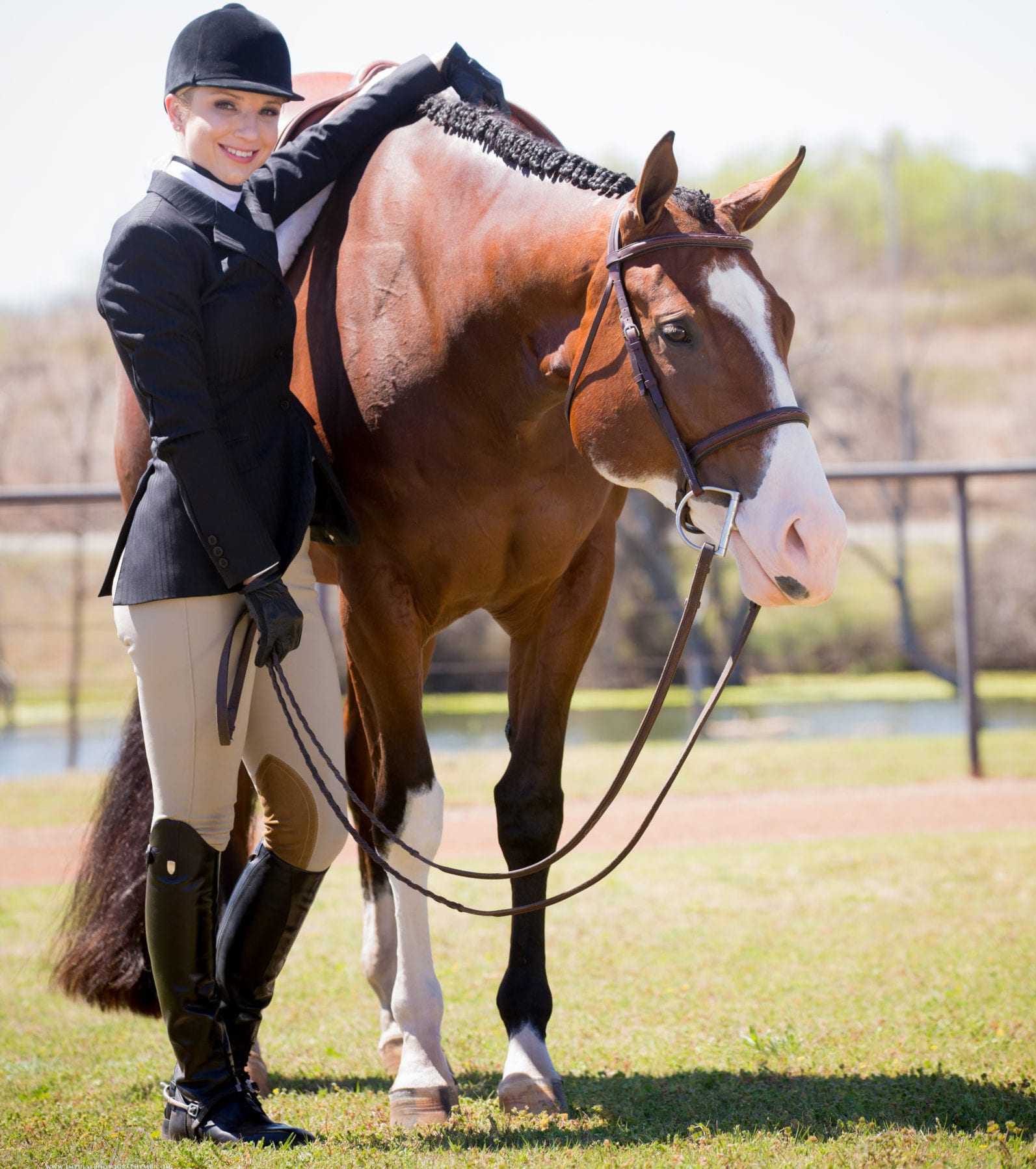 Jenna Tolson – As “horse show folk,” many of us are natural perfectionists. It’s a trait that’s almost synonymous with being a ‘crazy horse person.’ This drive for perfection helps us pay attention to the details important in the show ring but can also lead to stress and self-criticism when things don’t go as planned. I’ve learned the importance of managing this perfectionism. To reset my mind, I focus on the bond with my horse, reminding myself that showing is about our journey, trust, and continual improvement, not just ribbons and results. Before entering the ring, I practice focused breathing, which helps both me and my horse stay relaxed. After each show, I reflect constructively on what went well and what could be better. Talking with trainers and fellow riders is also key. They provide perspective and support. This is invaluable. Their support and perspective help to keep my perfectionism in check. Ultimately, being a perfectionist in the horse-showing world can be a strength if balanced with self-compassion and an appreciation for the journey with our horses. Each ride, no matter the outcome, is a step forward in our journey, and that’s something to be proud of. I say all of this with the humility that I am very much a continual work in progress myself and probably need to listen to my own advice.
Jenna Tolson – As “horse show folk,” many of us are natural perfectionists. It’s a trait that’s almost synonymous with being a ‘crazy horse person.’ This drive for perfection helps us pay attention to the details important in the show ring but can also lead to stress and self-criticism when things don’t go as planned. I’ve learned the importance of managing this perfectionism. To reset my mind, I focus on the bond with my horse, reminding myself that showing is about our journey, trust, and continual improvement, not just ribbons and results. Before entering the ring, I practice focused breathing, which helps both me and my horse stay relaxed. After each show, I reflect constructively on what went well and what could be better. Talking with trainers and fellow riders is also key. They provide perspective and support. This is invaluable. Their support and perspective help to keep my perfectionism in check. Ultimately, being a perfectionist in the horse-showing world can be a strength if balanced with self-compassion and an appreciation for the journey with our horses. Each ride, no matter the outcome, is a step forward in our journey, and that’s something to be proud of. I say all of this with the humility that I am very much a continual work in progress myself and probably need to listen to my own advice.
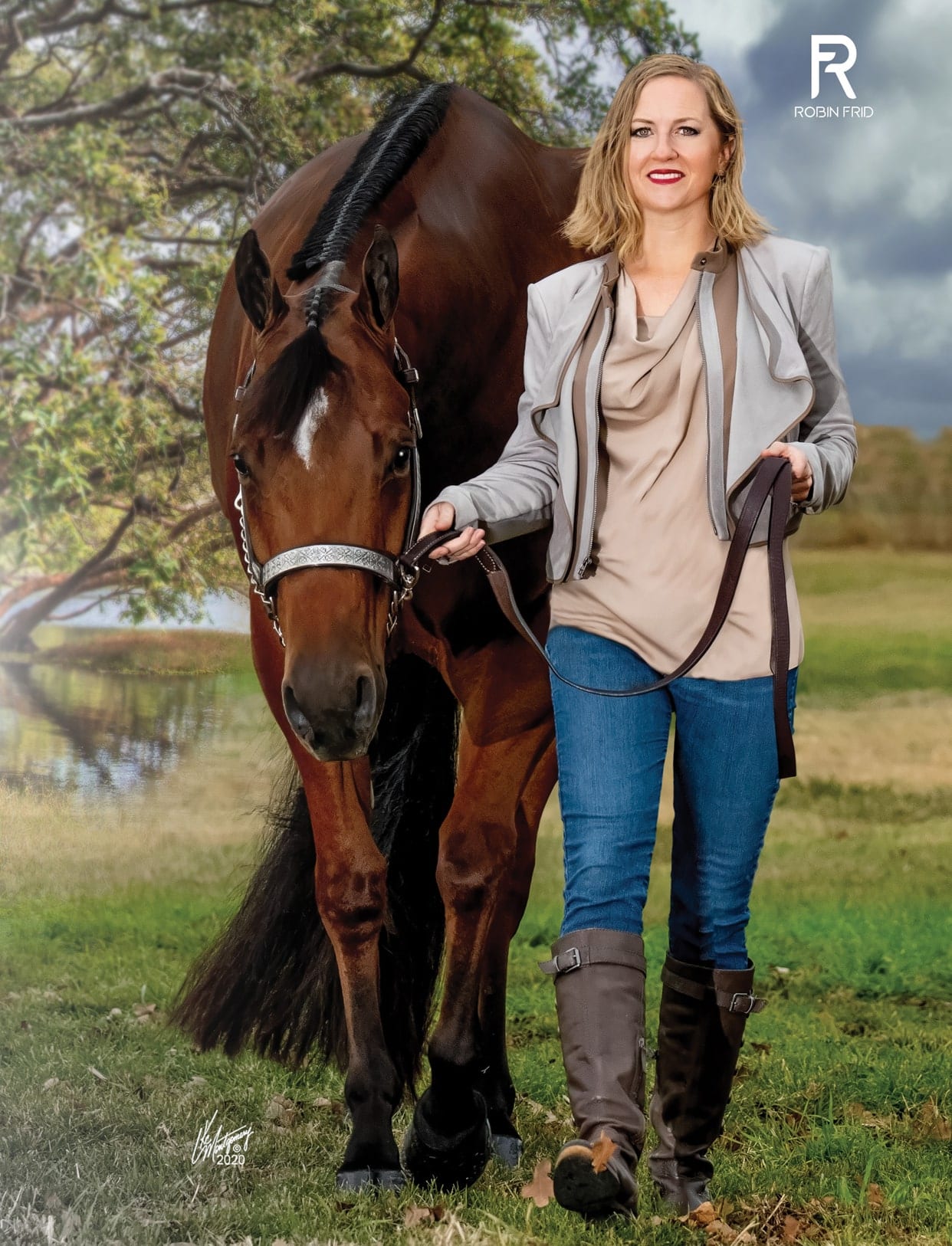 Beckie Peskin – For me, if I’m in bad headspace, or I’ve had a few bad runs, sometimes I just need to find a way to remove myself or get a reset. This past year’s World Show was a good example. I had a great first prelim, but didn’t get called back. Then, I had three events where each one had a little bobble that kept me out of finals that I had made the prior year or from placing in classes that I had high expectations for. Honestly, I was really disappointed. I just needed to clear my head and step away so I literally drove home in the middle of the horse show and spent a day with my family. That’s obviously not an option at every horse show – but finding someway to just clear, your headspace is really important sometimes. And maybe my horse needed a day or so away from me. When I came back, we went to work together and had spectacular runs in our last two classes. It’s really about finding what works for you as an individual. Maybe it’s family time or a massage or just getting off the grounds for a fun dinner with friends and trying to remember it was just a bad day(s) and there is always tomorrow.
Beckie Peskin – For me, if I’m in bad headspace, or I’ve had a few bad runs, sometimes I just need to find a way to remove myself or get a reset. This past year’s World Show was a good example. I had a great first prelim, but didn’t get called back. Then, I had three events where each one had a little bobble that kept me out of finals that I had made the prior year or from placing in classes that I had high expectations for. Honestly, I was really disappointed. I just needed to clear my head and step away so I literally drove home in the middle of the horse show and spent a day with my family. That’s obviously not an option at every horse show – but finding someway to just clear, your headspace is really important sometimes. And maybe my horse needed a day or so away from me. When I came back, we went to work together and had spectacular runs in our last two classes. It’s really about finding what works for you as an individual. Maybe it’s family time or a massage or just getting off the grounds for a fun dinner with friends and trying to remember it was just a bad day(s) and there is always tomorrow.
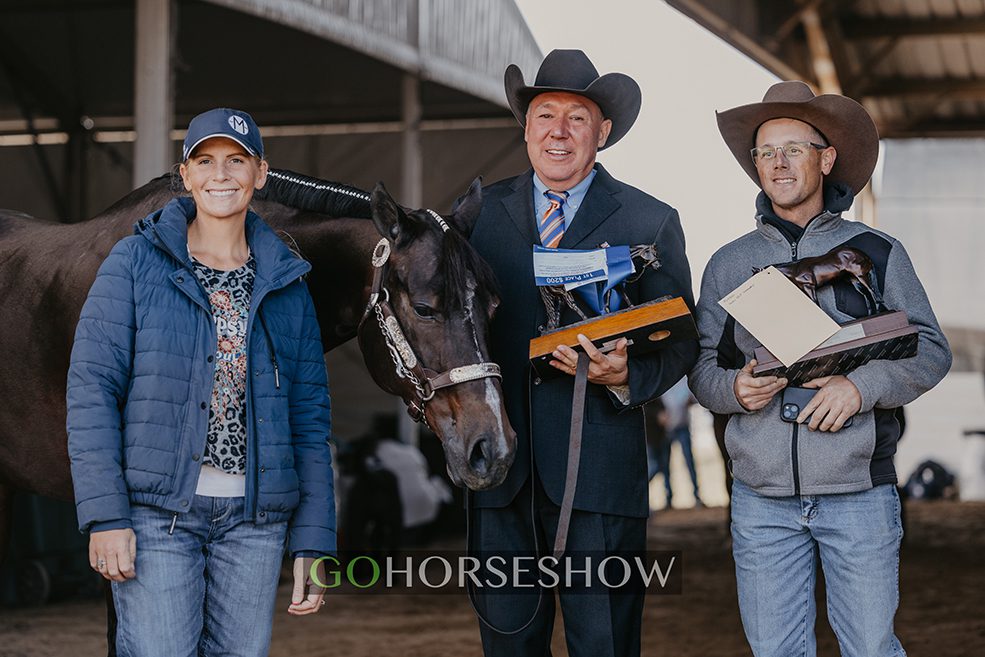 Joe Whitt – For me I work hard on staying positive and focus on showing aganist myself. If I have made progress or learned from the class, the show or a mistake I count it as a win. We all make mistakes, and I always analyze my mistakes and try to learn from them. I think as an individual; it is great to be your own best critic but it is crucial to focus on where you have been and the progress you have made. Set measurable smart goals and realize no one is perfect, but you can always be your best self. Enjoy the journey.
Joe Whitt – For me I work hard on staying positive and focus on showing aganist myself. If I have made progress or learned from the class, the show or a mistake I count it as a win. We all make mistakes, and I always analyze my mistakes and try to learn from them. I think as an individual; it is great to be your own best critic but it is crucial to focus on where you have been and the progress you have made. Set measurable smart goals and realize no one is perfect, but you can always be your best self. Enjoy the journey.
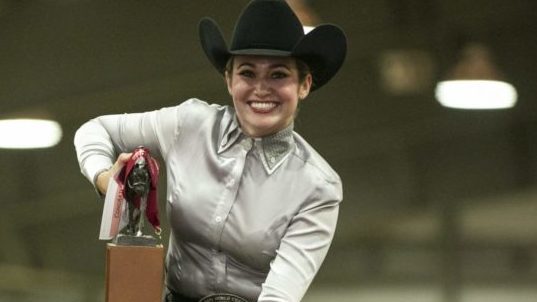 Paige Wacker – This is something I’m currently working through. Trying to balance veterinary school and riding my horse has been quite challenging. To be completely honest, in the past three months, I’ve had more times I’ve been in a negative place than positive. I realized that drowning myself in school and not getting enough physical exercise has been impactful on my mental health. It’s not realistic for me to go and ride everyday during the semester, so I’ve made it a goal to go out two times a week. On the days I don’t go to the barn, I either take the dogs for a walk or go on the elliptical. Fortunately but also, unfortunately, my mental health is a direct reflection of how my ride is going to go. I’m learning that if I’m having an “off” day, I shouldn’t ride because that doesn’t set my horse or myself up for success. I might just spend my time at the barn brushing my horse, teaching him tricks or taking him for a walk. At a show, that’s not an option. So I’ve found going for a walk, walking the lines of my pattern and visualizing every step of my ride helps me focus on the tasks at hand. I’m a perfectionist which has its perks and downfalls. I’m usually very hard on myself when I make mistakes and that’s something I’m currently working through. My current horse is green and very challenging to ride. Therefore, perfectionism is not an option and I’m making a lot of mistakes. At times during my ride, I’m frightened or irritated. I’ve learned that admitting I’m scared or frustrated is the first step to finding a solution to whatever the issue is. I always fear that I’m going to make a mistake and “wreck” my horse or get hurt. However, overcoming an obstacle each time is helping me build confidence and “managing” my perfectionism tendencies.
Paige Wacker – This is something I’m currently working through. Trying to balance veterinary school and riding my horse has been quite challenging. To be completely honest, in the past three months, I’ve had more times I’ve been in a negative place than positive. I realized that drowning myself in school and not getting enough physical exercise has been impactful on my mental health. It’s not realistic for me to go and ride everyday during the semester, so I’ve made it a goal to go out two times a week. On the days I don’t go to the barn, I either take the dogs for a walk or go on the elliptical. Fortunately but also, unfortunately, my mental health is a direct reflection of how my ride is going to go. I’m learning that if I’m having an “off” day, I shouldn’t ride because that doesn’t set my horse or myself up for success. I might just spend my time at the barn brushing my horse, teaching him tricks or taking him for a walk. At a show, that’s not an option. So I’ve found going for a walk, walking the lines of my pattern and visualizing every step of my ride helps me focus on the tasks at hand. I’m a perfectionist which has its perks and downfalls. I’m usually very hard on myself when I make mistakes and that’s something I’m currently working through. My current horse is green and very challenging to ride. Therefore, perfectionism is not an option and I’m making a lot of mistakes. At times during my ride, I’m frightened or irritated. I’ve learned that admitting I’m scared or frustrated is the first step to finding a solution to whatever the issue is. I always fear that I’m going to make a mistake and “wreck” my horse or get hurt. However, overcoming an obstacle each time is helping me build confidence and “managing” my perfectionism tendencies.
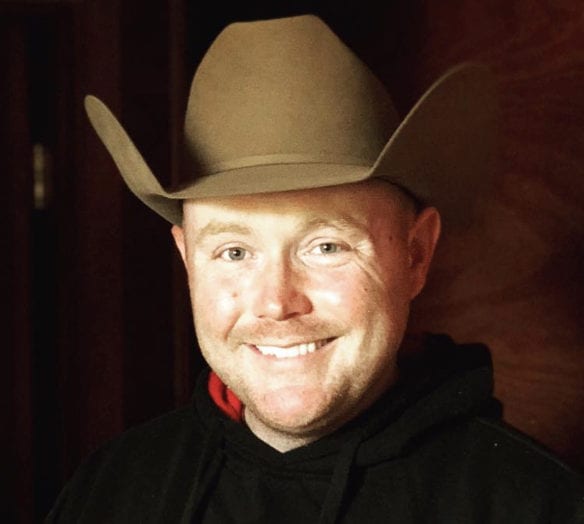 Blake Carney – Perfectionism and mistakes are a tough subject with people who are determined to do their best, but I try really hard to remind people that perfectionism isn’t always doing it perfect, but preparing correctly and doing your best, and sometimes it just doesn’t fall your way. Mistakes are a part of the process, and you’re going to make a lot of them. Learning from the mistake is all that matters. As for negativity, I think it’s really easy to feel like you’re falling short from time to time, but I think if you stay looking at the bigger picture, the bumps in the road along the way won’t affect you as much.
Blake Carney – Perfectionism and mistakes are a tough subject with people who are determined to do their best, but I try really hard to remind people that perfectionism isn’t always doing it perfect, but preparing correctly and doing your best, and sometimes it just doesn’t fall your way. Mistakes are a part of the process, and you’re going to make a lot of them. Learning from the mistake is all that matters. As for negativity, I think it’s really easy to feel like you’re falling short from time to time, but I think if you stay looking at the bigger picture, the bumps in the road along the way won’t affect you as much.
 Elizabeth “Spike” Brewer – This is a tough one. I think anyone showing horses struggles with staying positive. As I have gotten older, I’ve definitely embraced a much more laid back approach and truly am just thankful if I get lucky to have a horse to show. For me, I try to raise most of the horses I show so as any small breeder knows, so many things can go wrong. So if you do get lucky enough to have one make it to the show pen, that’s a huge accomplishment itself so anything else is a the cherry on top. Enjoy the process and enjoy the ride even more.
Elizabeth “Spike” Brewer – This is a tough one. I think anyone showing horses struggles with staying positive. As I have gotten older, I’ve definitely embraced a much more laid back approach and truly am just thankful if I get lucky to have a horse to show. For me, I try to raise most of the horses I show so as any small breeder knows, so many things can go wrong. So if you do get lucky enough to have one make it to the show pen, that’s a huge accomplishment itself so anything else is a the cherry on top. Enjoy the process and enjoy the ride even more.
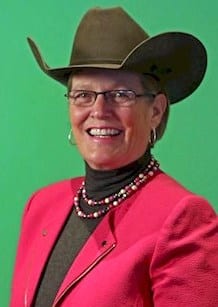 Holly Hover – I think mental struggles with competition are real for all of us. The first thing we all focus on is ‘what I did wrong’ or ‘you should have done this’. A long time ago a friend of mine who was a sports psychologist gave me some very positive tools for myself as a competitor as well as my effectiveness as a coach. She told me that my first question should be, ‘tell me five things you did well in this pattern or performance?’ Now tell me ‘the things you would have wanted to do better?’ She said that we all have shelves that hold our mistakes, our doubts…our weak links. Every time you compete, just remove at least one of them..one at a time…and concentrate on not letting that issue return to your shelf. I always loved this advice..first reward yourself for the good decisions and then begin to eliminate the bad habits that negatively reflect on your success. This mentor was Grace Hoyt (wife of the great horseman John Hoyt). It’s been over 30 years ago that she told me this, and I still fall back on it today.
Holly Hover – I think mental struggles with competition are real for all of us. The first thing we all focus on is ‘what I did wrong’ or ‘you should have done this’. A long time ago a friend of mine who was a sports psychologist gave me some very positive tools for myself as a competitor as well as my effectiveness as a coach. She told me that my first question should be, ‘tell me five things you did well in this pattern or performance?’ Now tell me ‘the things you would have wanted to do better?’ She said that we all have shelves that hold our mistakes, our doubts…our weak links. Every time you compete, just remove at least one of them..one at a time…and concentrate on not letting that issue return to your shelf. I always loved this advice..first reward yourself for the good decisions and then begin to eliminate the bad habits that negatively reflect on your success. This mentor was Grace Hoyt (wife of the great horseman John Hoyt). It’s been over 30 years ago that she told me this, and I still fall back on it today.
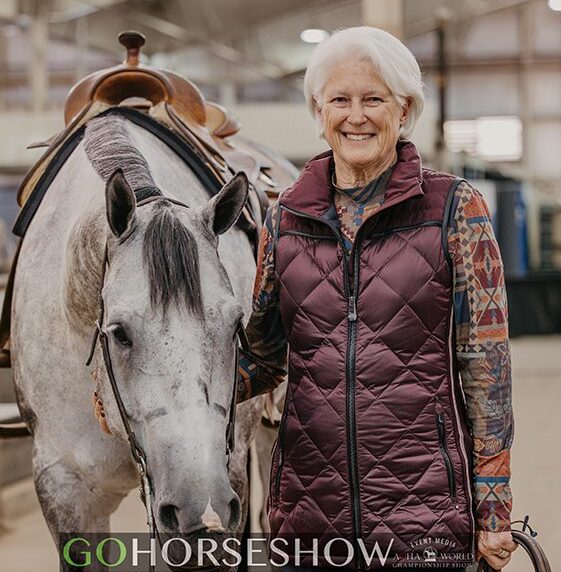 Kathy Tobin – I vent with my husband or friends. They help me a lot. If people are feeling badly about bad rides, I tell them to sit and watch trainers show as no one has a perfect go every time. They make the same mistakes as us all, like going off pattern, spooking horses, etc, so by watching the Open classes, you realize you aren’t the only one having a bad go. We are all only human and no one is perfect.
Kathy Tobin – I vent with my husband or friends. They help me a lot. If people are feeling badly about bad rides, I tell them to sit and watch trainers show as no one has a perfect go every time. They make the same mistakes as us all, like going off pattern, spooking horses, etc, so by watching the Open classes, you realize you aren’t the only one having a bad go. We are all only human and no one is perfect.
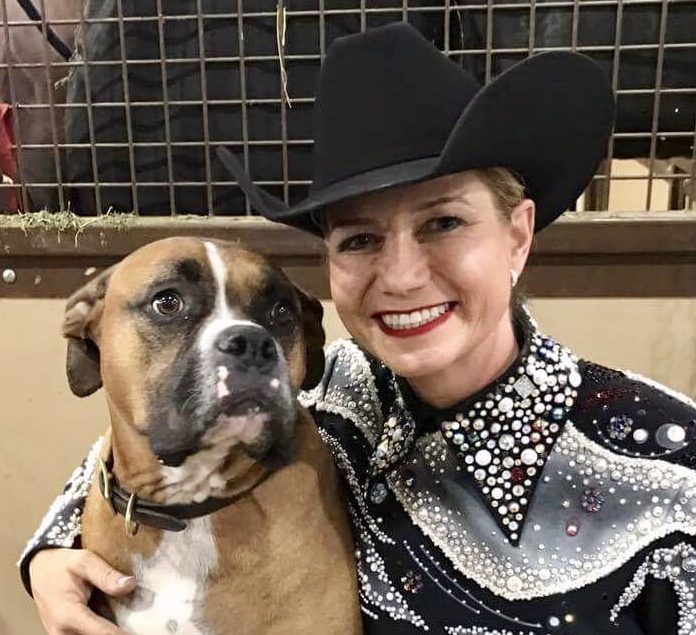 Tiina Volmer – I really don’t get into a negative mindset because I thank God everyday that I am blessed to be able to ride and show horses. Even if things do not go the way I predicted, which happens more than not, I’m a firm believer that it happens for a reason even if I don’t understand what that reason is at that time. I look at struggles as a challenge and a learning experience not as a failure. A horsetrainer from my past Brock McCauly told me if something wasn’t working the way I wanted, then do the total opposite even if it didn’t make sense. That piece of advice has helped me numerous times in the past. It gets you to think outside of the box and helps you get out of your rut. Always have goals for your horse and yourself not just to win the class. For example, I just got home from Florida and showed my young horse for the first time in horsemanship. I had problems with my transitions but knew if I would just ask, let him absorb my request and wait on him that he would be good. We were communicating well during the whole pattern till the last maneuver which was a 360 degree turn. He was being so good and at the 3/4 mark I asked for more than he could handle at the time, and he stopped and reared up protesting that that was too much. I knew better and went off my plan because I wanted more than he could give at the time. It was definitely my mistake, but I am using it as a learning experience and not a negative experience and I am excited to try again. Horses have a unique ability to humble us and let us know we are not perfect. Part of the addiction of showing horses I believe is for the learning aspect which should keep you in the correct mindset and move forward not backward.
Tiina Volmer – I really don’t get into a negative mindset because I thank God everyday that I am blessed to be able to ride and show horses. Even if things do not go the way I predicted, which happens more than not, I’m a firm believer that it happens for a reason even if I don’t understand what that reason is at that time. I look at struggles as a challenge and a learning experience not as a failure. A horsetrainer from my past Brock McCauly told me if something wasn’t working the way I wanted, then do the total opposite even if it didn’t make sense. That piece of advice has helped me numerous times in the past. It gets you to think outside of the box and helps you get out of your rut. Always have goals for your horse and yourself not just to win the class. For example, I just got home from Florida and showed my young horse for the first time in horsemanship. I had problems with my transitions but knew if I would just ask, let him absorb my request and wait on him that he would be good. We were communicating well during the whole pattern till the last maneuver which was a 360 degree turn. He was being so good and at the 3/4 mark I asked for more than he could handle at the time, and he stopped and reared up protesting that that was too much. I knew better and went off my plan because I wanted more than he could give at the time. It was definitely my mistake, but I am using it as a learning experience and not a negative experience and I am excited to try again. Horses have a unique ability to humble us and let us know we are not perfect. Part of the addiction of showing horses I believe is for the learning aspect which should keep you in the correct mindset and move forward not backward.
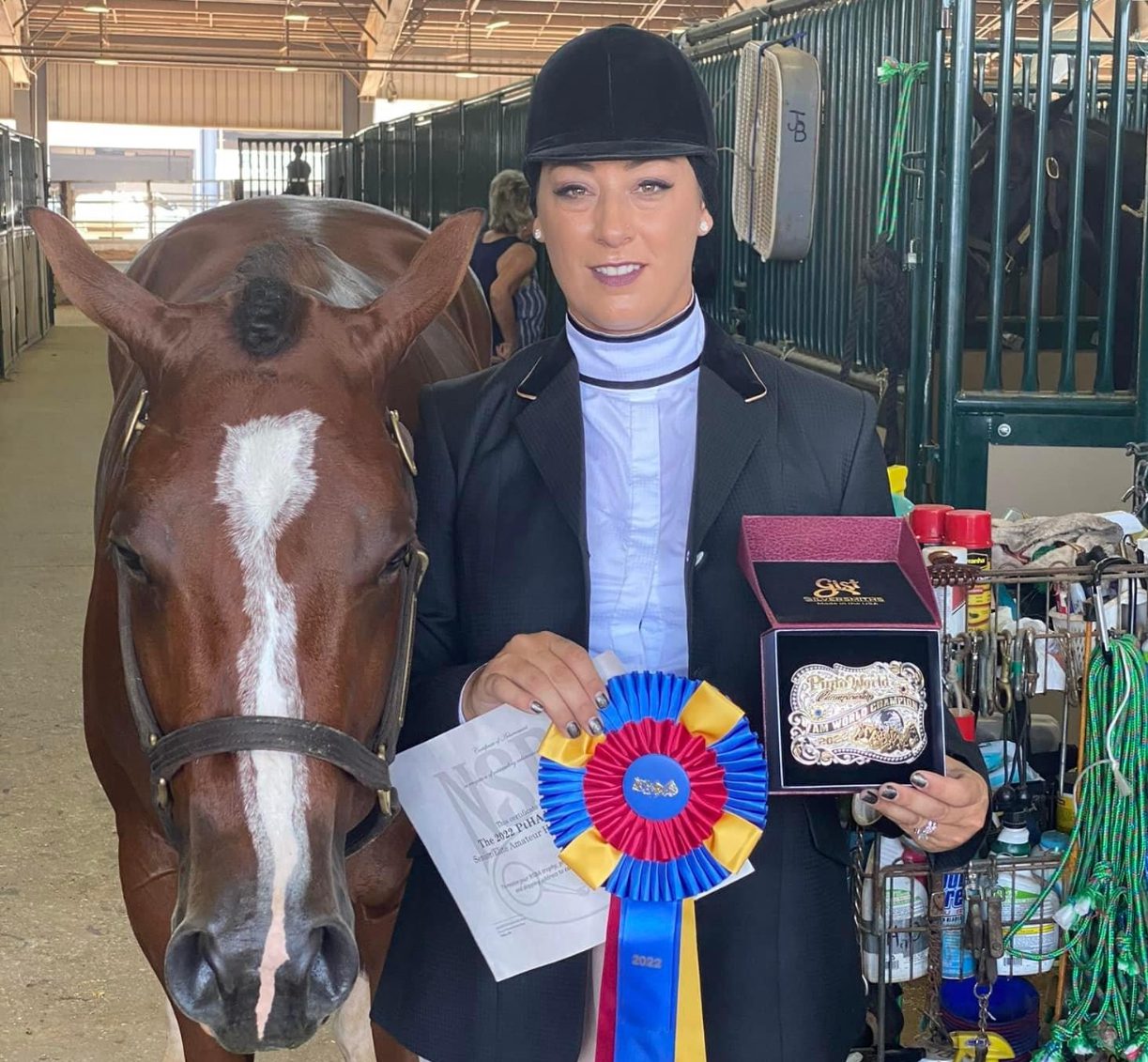 Ashley Enoch Scott – I like to listen to podcasts. Anytime I’m at a show and I go out to longe or have some free time, I’ll pop my earbuds in and listen to something that is motivating and totally unrelated to horses. I do tend to get in my head a lot, especially in classes I’m not super confident in. I like to just have some free time to myself without the stress of people around who are going to put more pressure on me. My husband says he always knows when to leave me alone because I’ll have my game face on which is just me being super focused.
Ashley Enoch Scott – I like to listen to podcasts. Anytime I’m at a show and I go out to longe or have some free time, I’ll pop my earbuds in and listen to something that is motivating and totally unrelated to horses. I do tend to get in my head a lot, especially in classes I’m not super confident in. I like to just have some free time to myself without the stress of people around who are going to put more pressure on me. My husband says he always knows when to leave me alone because I’ll have my game face on which is just me being super focused.
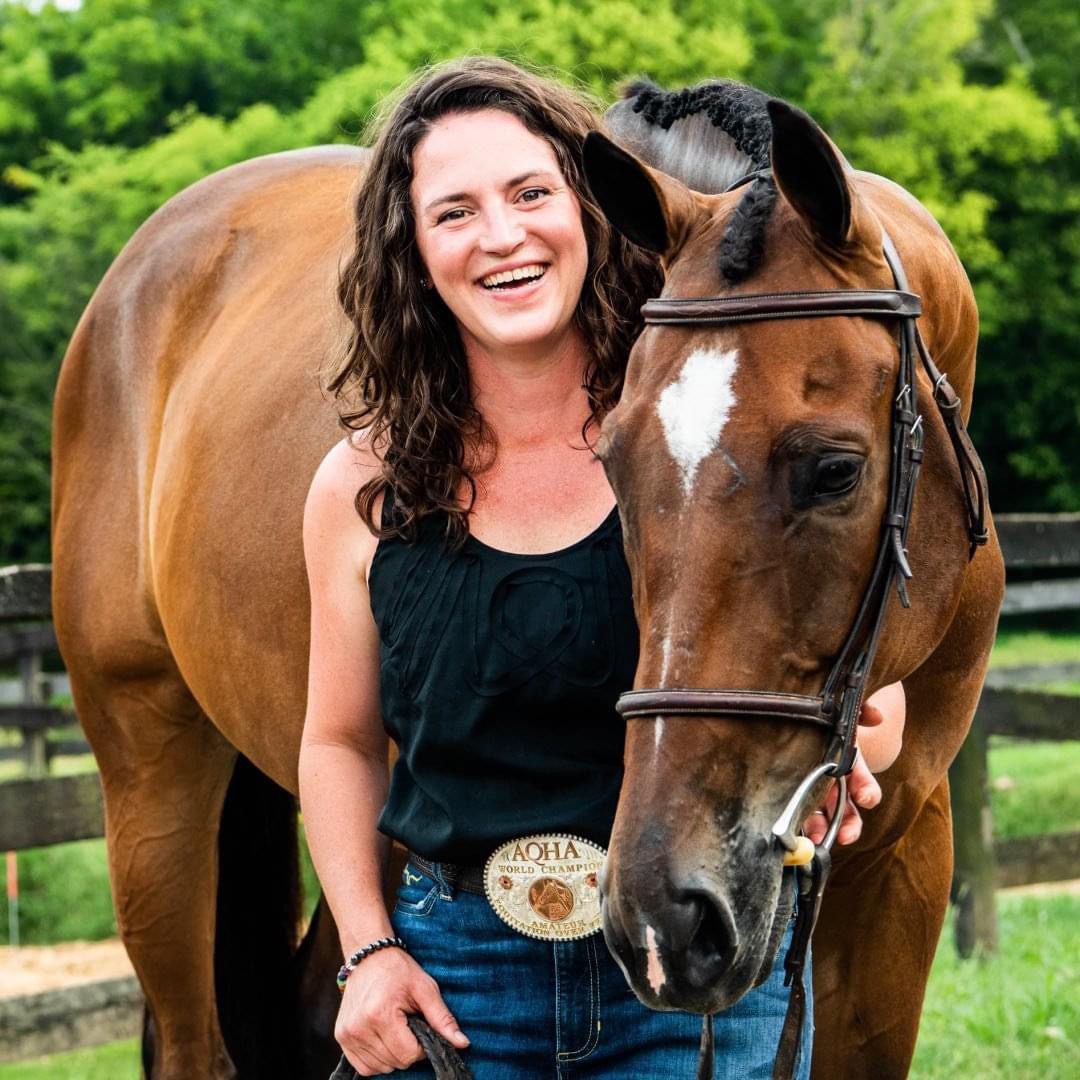 Sarah Elder Chabot – For me the key is keeping to a plan. I find that if I am a lot calmer to start then it’s easier to reset. I have a routine and boundaries and I keep to those. When something goes awry, I can focus back on the routine to get back on track and refocus my mindset. I am currently taking an eight week course on strengthening my mindset. I think it’s that important of a skill to not only be successful, but to also enjoy what we are doing.
Sarah Elder Chabot – For me the key is keeping to a plan. I find that if I am a lot calmer to start then it’s easier to reset. I have a routine and boundaries and I keep to those. When something goes awry, I can focus back on the routine to get back on track and refocus my mindset. I am currently taking an eight week course on strengthening my mindset. I think it’s that important of a skill to not only be successful, but to also enjoy what we are doing.


